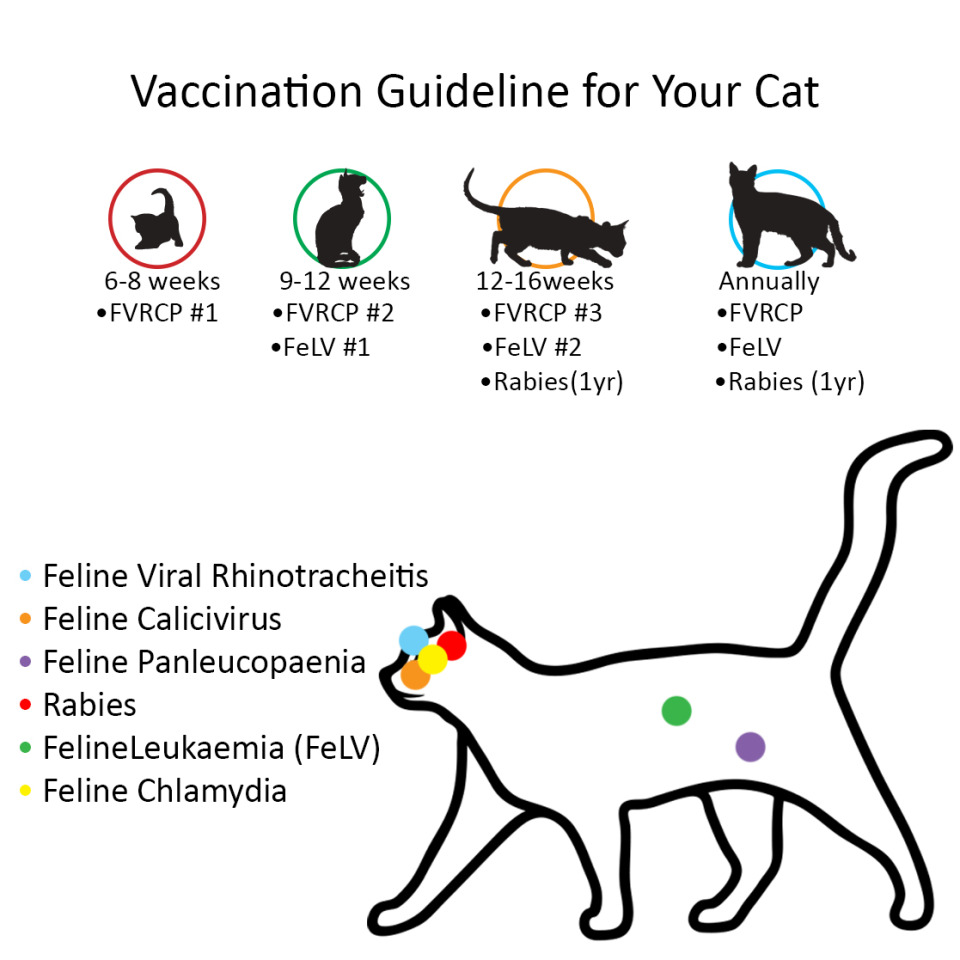do indoor cats need felv vaccine
Any cat with the potential to come into contact with an FeLV cat should be vaccinated. This is because FeLV only usually spreads between cats in close and regular contact but cat flu and panleukopaenia are very infectious and can spread on clothes shoes and other surfaces.
Have your kitten re-tested for FIV in six months.
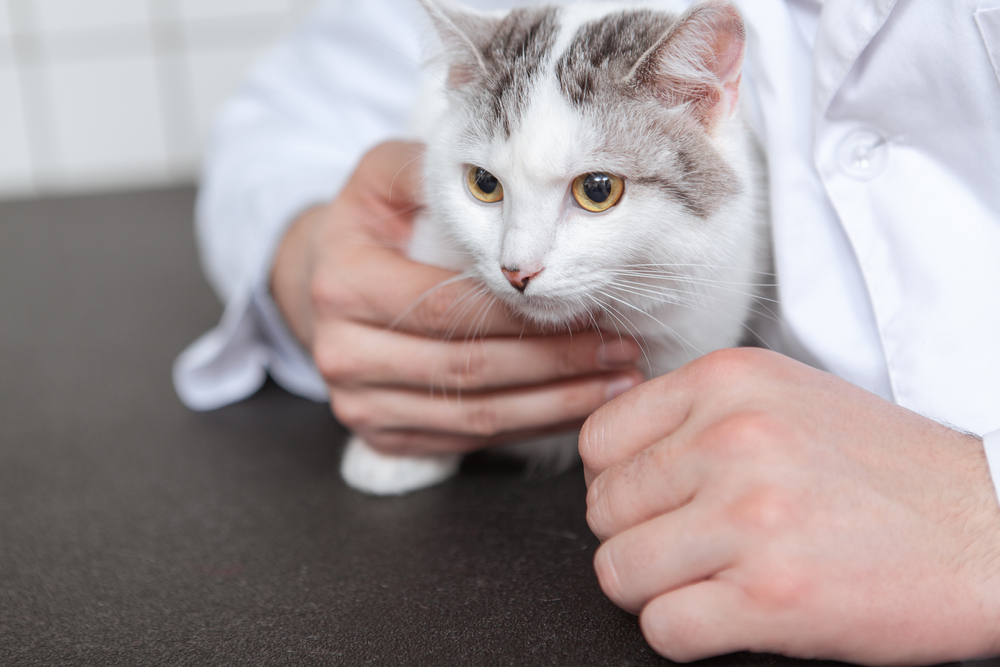
. Although the FeLV vaccine is not considered a core vaccine in adult indoor cats it is highly recommended for cats that spend time outdoors. Non-core vaccines are only given to cats if there is a genuine risk of exposure to the infection and if vaccination would provide good protection. Need for Rabies Vaccination for Indoor Cats.
Noncore Vaccines for Cats. Rarely we hear of rabid bats or wildlife getting into the attic or house exposing both humans and our four-legged family members. All cats even indoor cats should receive the rabies vaccination and booster to avoid the various unwanted risks and consequences associated with skipping the vaccine.
This will reduce his exposure to potential pathogens. The noncore vaccines include. Vaccines are preparations that resemble infectious agents like bacteria or viruses but are not pathogenic disease causing.
The FVRCP vaccine is important for all cats including indoor cats because it protects against three viruses that are airborne and spread without cat-to-cat contact. A kitten should be vaccinated around nine weeks of age with the important second dose being given at 12 weeks. Protection and the Feline Leukemia Vaccine.
Feline leukemia a usually fatal cancer caused by a retrovirus spreads from cat to cat via saliva when the animals lick bite or groom one another. Your cat can still be exposed While indoor cats arent exposed to as many infectious diseases such as panleukopenia or Feline Leukemia FeLV your cat can still potentially be exposed to rabies. Therefore as long as there is no chance of escape indoor cats dont need the vaccine for FeLV at all.
However if that vaccine is not included at the next annual booster it takes a two vaccination treatment three weeks apart to ensure your cat is covered again. The simplest answer is that rabies vaccines are required by law for all cats and dogs over the age of six months in New York state - and. The FIV Vaccine Offered Limited Protection The vaccine contained certain strains of inactivated virus which offered protection against some but not all FIV infections.
Keep your kitten indoors. Feline leukemia a usually fatal cancer caused by a retrovirus spreads from cat to cat via saliva when the animals lick bite or groom one another. That get taken to the vet annually is vaccinated 1 although vaccination is one of the most important ways to protect pets and of course cats from infectious diseasesIf youve been hesitant about making vaccination a priority so far you can confidently do so now.
If your cat lives exclusively indoors they will still need to be vaccinated against cat flu and panleukopenia but may not need the FeLV vaccine. All the Cats Protection cats that we home have been vaccinated against FeLV. The current vaccine recommendations for cats from the AAHA and the AAFP include vaccinating all kittens against FeLV following a negative blood test.
Provided Piper never ventures outside and has no interaction with other cats then theres virtually no way she could contract the disease--and vaccinating her. It is a myth that cats who live indoors do not need to be vaccinated against infectious diseases. Feline rhinotracheitis virus feline calici virus and feline panleukopenia virus make up the feline.
However cats that roam outdoors coming into contact with other cats are likely to be at risk so vaccination may be recommended. Core vaccines include rabies and FVRCP feline herpes virus panleukopenia virus and calicivirus. This simply means essential and non-essential.
My vet tells me that my indoor-only cat Izzy needs to be vaccinated for rabies. Then they must be boostered a year later. Feline leukemia virus FeLV Chlamydophila felis Bordetella bronchiseptica FeLV Vaccine.
For example vaccination against rabies is core whereas protection against feline leukemia virus is non-core for an indoor cat. The American Association of Feline Practitioners vaccination guideline recommends that kittens get a full series of vaccinations against panleukopenia feline herpes type 1 calicivirus feline leukemia and rabies followed by a booster one year later. Only one in three cats in the US.
Your veterinarian can discuss the pros and cons of vaccinating your cat against this disease based on her specific lifestyle and risk of exposure. Ad Video chat with a licensed veterinarian to triage your pets health and fill prescriptions. Kittens should receive this shot at 6-8 weeks because they are very vulnerable to calicivirus and distemper.
So even when it was available not many cats actually received the vaccine. If you bring a cat whos FeLV-positive into your household or have an indooroutdoor cat vaccinate the negative cat with a leukemia vaccine. If this were a yes-or-no question the answer would be no.
Do indoor cats need shots. In terms of how often to repeat a dose with a booster shot this is decided by how long protection. Not only are there different schedules and needed vaccines for cats and kittens but there are also some extra vaccines for different lifestyles.
Do Cats Need FVRCP Shots Every Year. Although the FeLV vaccine is not considered a core vaccine in adult indoor cats it is highly recommended for cats that spend time outdoors. The core vaccines are considered essential for all cats including indoor-only cats because of the widespread andor severe nature of the diseases being protected against.
Indoor cats that never encounter other cats should not be at risk of picking up Feline Leukemia so vaccination may not be necessary. To do this vets divide the vaccine components into core and non-core. Your veterinarian can discuss the pros and cons of vaccinating your cat against this disease based on her specific lifestyle and risk of exposure.
Indoor cats generally have a very low risk of getting FIV and rarely received the FIV vaccine. Benefits and Risks Q. The FVRCP is the most important vaccine.
Why do indoor cats need vaccinations. Cats are most susceptible to this virus in the first few years of life and their personalities are still developing you never know if your adorable new kitten is going to decide that he needs to dart out the door whenever they spot it. Yes you should vaccinate your indoor cat.
While living an indoor lifestyle is certainly safer overall than living outdoors and indoor living contributes to a longer life expectancy important infectious diseases can find indoor cats. Vaccines that are appropriate for some cats in some circumstances are considered noncore vaccines or lifestyle vaccines. Indoor cats are not at risk of contracting FeLV.
Experts differ a bit on how frequently this vaccine should be boosted. How often do cats need shots to protect. Suggested Articles Feline Vaccines.
Kittens should start getting vaccinations when they are 6 to 8 weeks old until they are about 16 weeks old. The FeLV vaccine works to protect your cat against feline leukemia virus. The type and frequency of vaccines given after that point varies considerably depending on a cats lifestyle and where you live.
The shots come in.
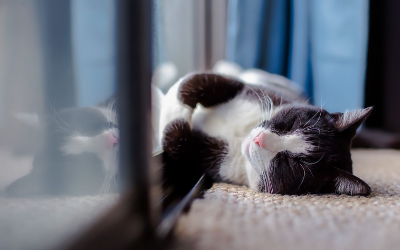
Indoor Cats And Infectious Disease Vca Animal Hospitals

Feline Leukemia Virus Vaccination Today S Veterinary Practice
/adult-cat-vaccination-schedule-4846632_V4-ff36ccb34d74410d9652b4307a26e8b3.png)
What Is The Average Adult Cat Vaccination Schedule

What You Need To Know About Cat Leukemia Oliveknows Cat Illnesses Feline Leukemia Cat Care

Pin On Life Hacks For Pet Owners
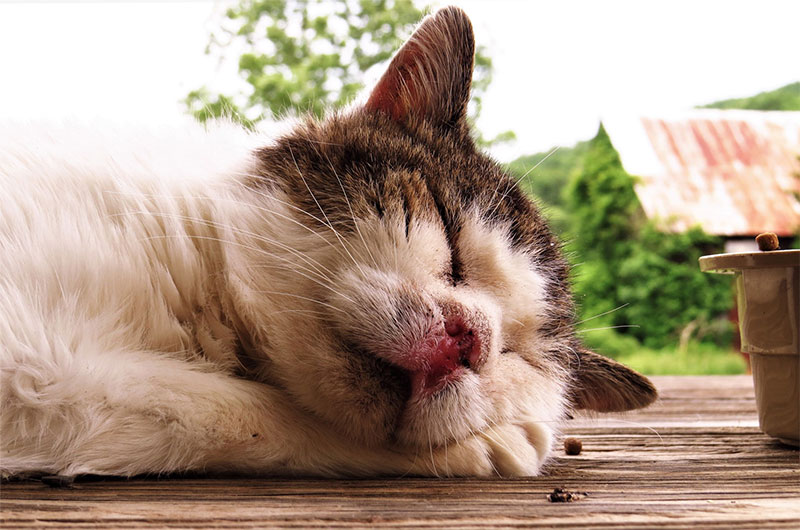
Does My Cat Need To Be Vaccinated For Feline Leukemia Tucson Az Adobe Veterinary Center

Does My Cat Need To Be Vaccinated For Feline Leukemia Tucson Az Adobe Veterinary Center
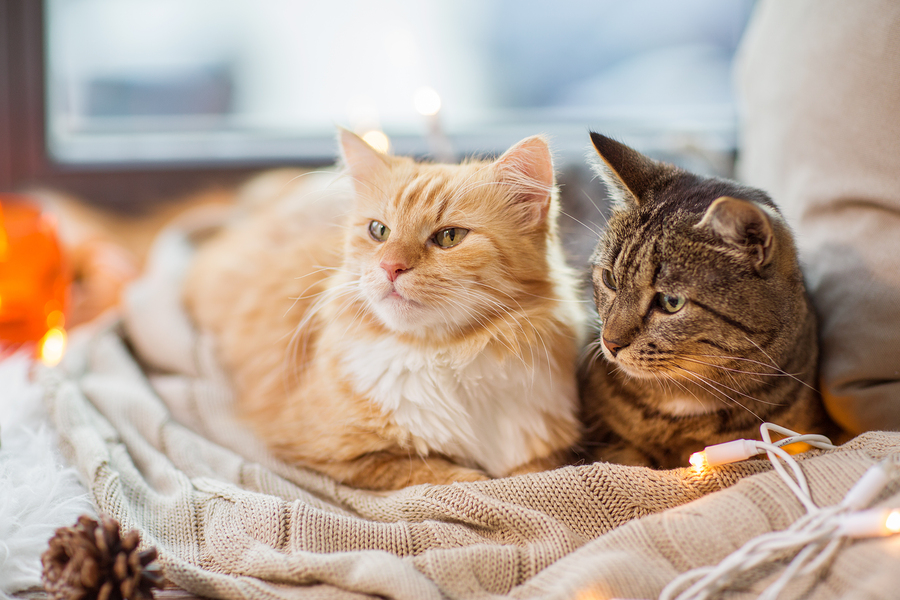
Why Your Indoor Cat May Need Vaccinations Fear Free Happy Homes

Pin On Happy Pet Lover S Pictures

Does My Cat Need To Be Vaccinated For Feline Leukemia Tucson Az Adobe Veterinary Center
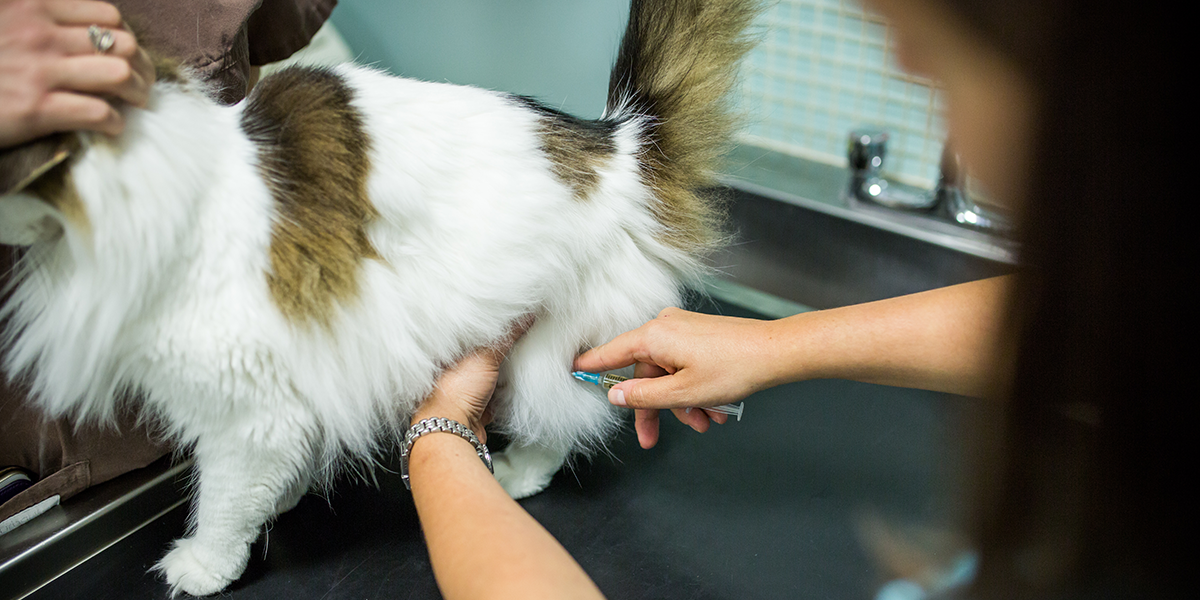
Vaccinating Your Cat International Cat Care

Learn Cat Care From The Pros Check Out Veterinary Tech Feline Leukemia Vet Medicine





